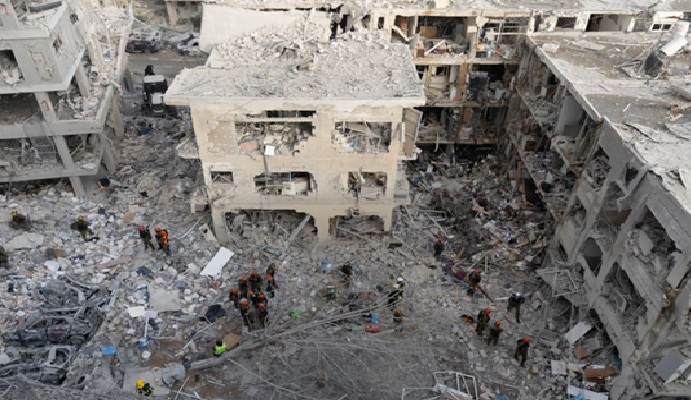
State-imposed lockdowns turn business owners into victims without support.
Afrasianet - Since the early hours of last Friday, Israel has launched a military operation against Iran, followed by security orders that imposed a tight state of emergency on the Israeli interior.
Instead of meeting these constraints with courageous economic decisions that protect the stakeholder public, the government has been silent as if the small business economy does not concern it.
The article, published by journalist Yakir Lisitsky in the Israeli newspaper Calcaliste, reflects mounting anger among freelancers and small business owners, who once again found themselves without income, horizon or legal protection, while the state was the party that imposed the closure.
"If the state is the one who imposes the lockdown, it is the one who has to pay," Lisitsky wrote in his angry editorial, stressing that what is happening today is neither a natural nor a sudden disaster, but a deliberate military plan that was implemented by a clear government decision, and therefore the state's disregard for its economic responsibilities is a double betrayal, moral and legal.
Strict rules without a safety net
As of Sunday 15 June, the Home Front Command extended the nationwide state of emergency until at least 30 June and ordered the closure of all non-essential businesses, including restaurants, cafes, entertainment halls and retail outlets.
These orders, as the article emphasizes, are not flexible guidelines but binding instructions by force of law. However, the state has not announced any formal compensation mechanism, timetable for financial assistance, or even an intention to roll out a temporary support plan.
In accurately describing the collapse of small businesses, Lisitsky wrote: "There is no compensation model. There is no clear message. There is no formal commitment. Tens of thousands of businesses were shut down, and millions of employees were affected. Business owners are once again left in the wind."
State evades war bill
Lisitsky believes that the government knew very well what it was going to do and had been planning for weeks, yet it had not developed any parallel plan to protect the internal economy.
"The problem is not only with the closure decision, but with the government planning war in advance and ignoring the preparation of a proper compensation structure," the author says, before adding: "This is not an individual initiative by the army or an emergency circumstance, but an official and conscious policy... Therefore, there is no excuse for the state to shirk its moral and economic duty."
Everything is ready. Except for the political decision
In his article, Lisitsky recalls that Israel has a legal model in place for emergency compensation, which was approved in October 2023, and that the tax authority is technically prepared to activate it within hours, but the only obstacle is the absence of a decision from the government.
"All that is required is a phone call from the government and quick approval," Lisitsky writes, noting that the debate within the Finance Ministry over "fear of manipulation" or "concern about the duration of the war" does not justify crippling the local economy.
"Certainty is not a reward. It's a condition for survival."
In striking words, the author sums up the essence of the crisis by saying: "Certainty is not a negative incentive, but a condition for survival."
The results on the ground are already beginning to appear:
• Many businesses have stopped placing orders.
• Wage and rent payments have been frozen.
• Many employees have received temporary or permanent dismissal notices.
All of this is happening in the absence of any realistic government framework for intervention or support.
After it can not be ignored
In his article, Lisitsky moves on to the humanitarian aspect, noting that many stakeholders today serve in reserves, some have left restaurants and kitchens, others have left their family and children.
"All they expect is not a grant or a gift. It's just a simple promise: they will come back and find their business still in place."
At the end of his article, the author makes a direct appeal to Finance Minister Bezalel Smotrich, calling on him to announce within 48 hours full compensation for every work closed or restricted by Home Front orders, until the end of June 2025, regardless of the duration of the war.
"The state cannot impose closures and evade accountability. Not financially, not legally, not morally."

